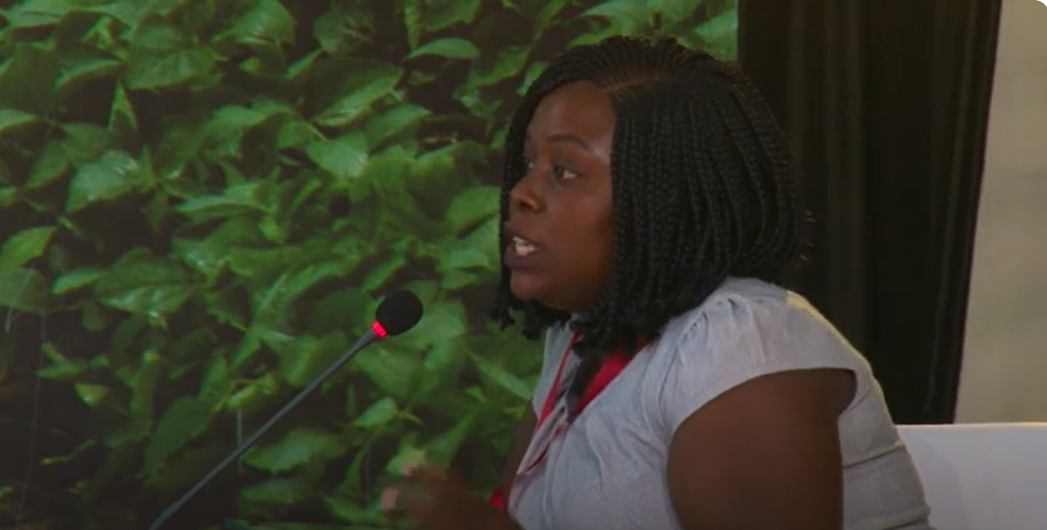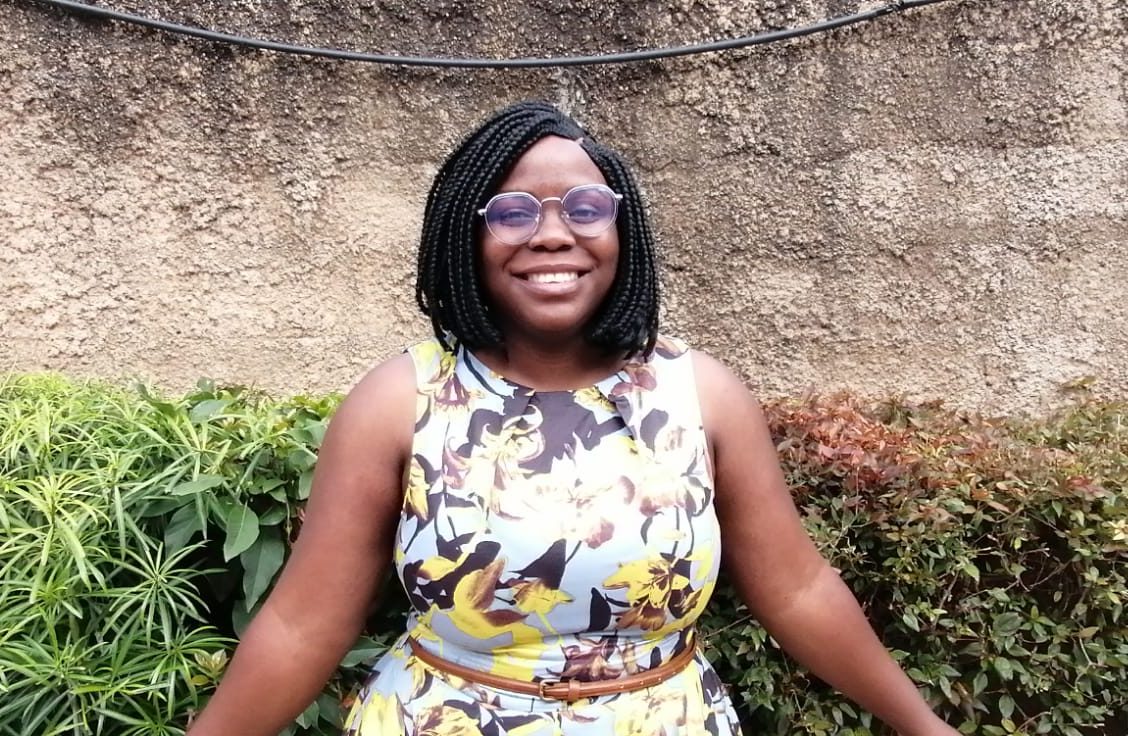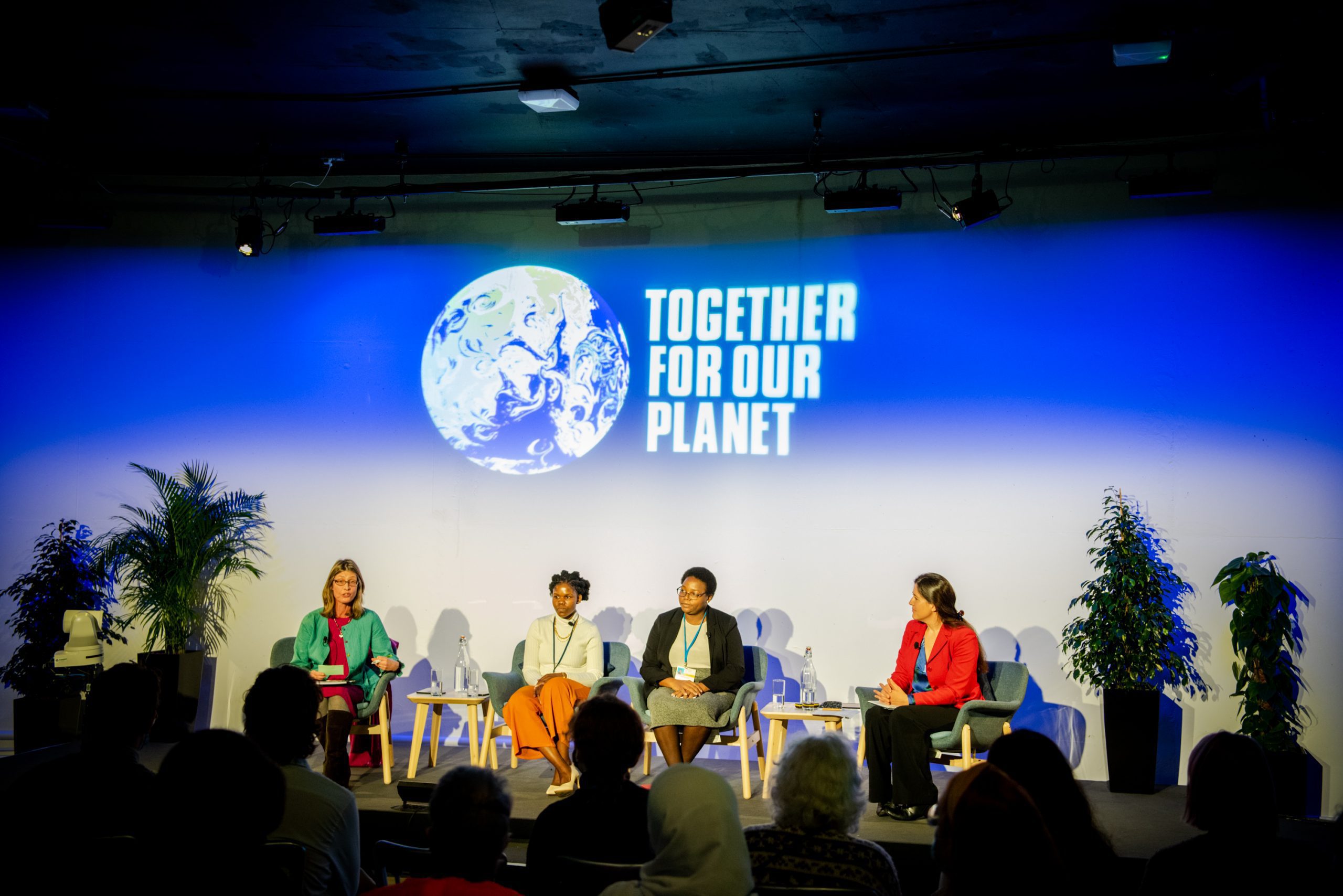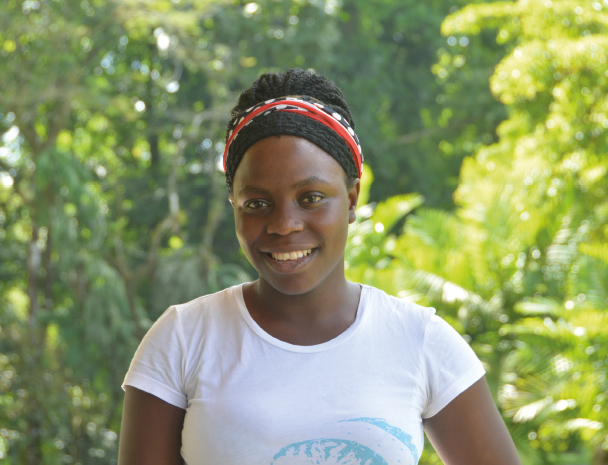I grew up in the northern part of Zambia called Kasama District. Unfortunately, I lost both my parents when I was very young, so my grandparents took me in. My grandparents were retired by then, just supporting us all through subsistence farming. Life was a challenge because of our financial problems. With the help of relatives, I managed to go to school, but I almost dropped out due to the financial challenges.
I thought my dreams of becoming somebody in life had been shattered.
Then, a teacher from my school recommended me to the School Based Committee to be considered for CAMFED support. That’s how I came to be a CAMFED client and I was able to complete my secondary school education. Getting that support was a big relief! Being able to go to school has opened so many doors not only for me but for so many other people.
It was also through CAMFED that I heard about EARTH University and the opportunities for us to apply to study there with support from the Mastercard Foundation. CAMFED staff helped me with the application, preparation for interviews, and my transition to university. Waiting to continue my studies was a challenging time, as it is for many school graduates in marginalized, rural communities. I attended a training called ‘Shaping My Future’ through the CAMFED Association, the network of women leaders educated with CAMFED support. There I learned life skills and was also given a grant that helped me start a business. I sold doormats and used the income to help my grandparents with some of their expenses.
When I went to study Agriculture Sciences and Resource Management at EARTH University it opened my mind to different perspectives. I wanted to understand why things were happening, the way they were happening, and what I could do to improve the situation. I began to see what was preventing us from having the yields we were expecting. I also learned techniques that I can use – techniques that I wanted to bring back home and share with people in my community. I could say, “you know what, there’s a cost effective way of producing food without harming the environment.”
Growing up, I hadn’t been fully aware of climate change, because at that time it wasn’t introduced in terms of knowledge or education, but I remember having many debates with my grandparents about why there was a change in the weather patterns. When farming season would come, I remember my grandmother would always say, “this is not the rain, we need to wait.”
We worked very hard, putting in a lot of effort and time to ensure that crops would grow, but sometimes the rain would arrive late or in excess. Those issues would really affect the food supply in the community. Small-scale farmers and rural community-based families are the most vulnerable because they depend on the environment to grow food.
I know how it feels to be vulnerable to those changing weather patterns. It dictates how you’re going to eat and survive that year.
In Zambia we have three seasons. The rainy season used to come towards the end of October and last until April. That was the time we would maximize farming and grow crops because that was the only water we would get. In the dry season, food would be scarce and people would look for wild foods, which can be dangerous. We would see children growing up with malnutrition and other health problems. I know now that all those things could be avoided if we focus on sustainable agriculture, and if people all around the world take care of the natural resources we have.
Many people don’t realize that natural resources can run out — they think the soil will be there forever and water will be there forever — but if you come from a background where water is a privilege, you understand that every drop should be cherished.
Read video transcript
Rural communities like the one I come from have traditional practices that most people do not consider to hold great potential, but they really work and can be maximized. Education gives you the opportunity to explore different ideas and discover what works best for the community and what works best for you as an individual.
To continue learning and growing I applied to the Mastercard Foundation-EARTH University Graduate Fellowship program after I graduated. I went through an interview process and was picked by CAMFED Zambia, where I’m currently working as a climate-smart Agriculture Officer. I work to train Agriculture Guides who will take the climate-smart techniques they learn and share them with female agriculture entrepreneurs in their own communities
When women receive an education it empowers them to farm in a way that is sustainable.
Climate-smart farming and women’s education are closely linked. From the research we are working on, we discovered that because of urbanization and lack of employment opportunities, men tend to migrate to the bigger cities, leaving their children and women alone in rural communities. Therefore, women are actually the bridge between the farm and the table. They work so hard to bring food and ensure that their children have had at least a meal a day.
I am a witness to the transformation that education brings. It is so empowering to start seeing women entrepreneurs making it in the agriculture sector because of the knowledge and the platform they’ve been given.
I see a future of many possibilities because of our CAMFED Association, which is a sisterhood.
We (the CAMFED Association) are a group of women from sub-Saharan Africa who have been empowered through education. Moreover, we are working to ensure that more children are in school and are able to live a better life. My sisters and I are able to support more girls: We raise funds through the income that we are making and buy school essentials like books, pencils, shoes, and menstrual products.
We are also working with communities on agriculture. We run workshops to create awareness about climate change and about what people can do to survive, to build resilience. Here in Zambia we have many different stakeholders coming on board — inclusion is very important because it allows you to see things from other points of view and work towards a common goal. One traditional leader has actually donated a piece of land to us to devote to sustainable agriculture.
For me, being in our sisterhood is amazing and fulfilling and I’m grateful to be part of it.
Life keeps getting better because we support each other and we offer emotional support and social support to others as well. It is so empowering and encouraging to know how far we have come through education. We know there is more to be done and we are going to continue going.
I am a role model in my community because other girls have seen me flourish from challenging conditions, so they are encouraged to work hard so that they can become economically independent and be able to join the fight against poverty in our community.





